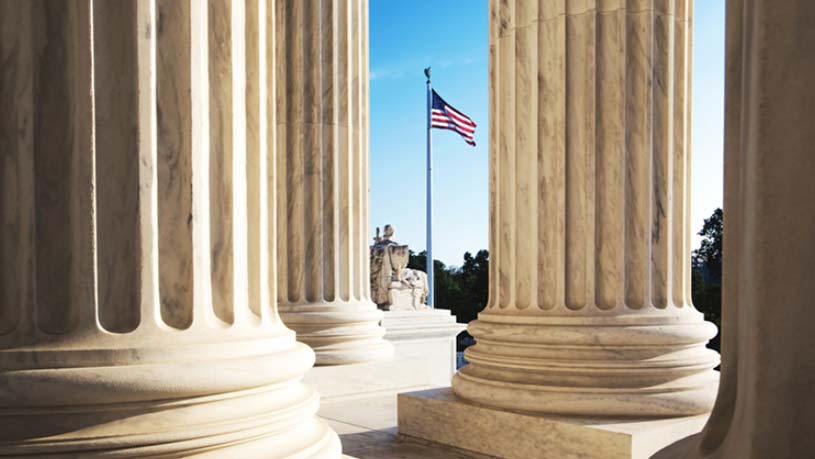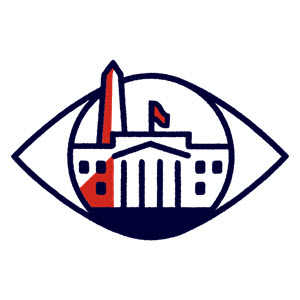Treasury, IRS Provide Penalty Relief for Tax Year 2025 for Information Reporting on Tips and Overtime Under the One Big Beautiful Bill Act
Part of a series | The One Big Beautiful Bill Act Series

This relief covers the new requirements to separately identify cash tip amounts, qualified overtime compensation, and the occupation codes of the person receiving cash tips.
The Department of the Treasury (Treasury) and the Internal Revenue Service (IRS) issued Notice 2025-62 (the Notice) on November 5, 2025. The Notice offers transition-year penalty relief to employers, payroll services providers, and third-party settlement organizations (TPSOs) for tax year 2025. This relief applies to new information reporting requirements under H.R. 1, The One Big Beautiful Bill Act (the Act), which was signed into law on July 4, 2025.
The new law created income tax deductions for qualified tips and qualified overtime compensation, requiring new information fields on 2026 Forms W-2, 1099s, and related filings. For additional background information on these provisions, review our prior articles:
- H.R.1, the One Big Beautiful Bill Act, Enacted July 4, 2025
- Early Guidance Issued under H.R. 1, The One Big Beautiful Bill Act
General Transition Relief (Tax Year 2025 Only)
The Notice provides relief to employers and other payors from the penalties under Internal Revenue Code (Code) sections 6721 and 6722 for failure to file or furnish correct information returns and payee statements. This relief covers the new requirements to separately identify cash tip amounts, qualified overtime compensation, and the occupation codes of the person receiving cash tips.
The relief applies to tax year 2025 and only if the filer otherwise submits a complete and accurate return. In other words, employers and payors must continue to report total aggregate wages or payments as usual – but they will not be penalized if they cannot yet provide the new data breakdowns.
The IRS emphasizes that this is a transition year intended to give employers, other payors, and payroll providers time to adjust systems and reporting processes.
Companies Encouraged to Provide Workers and Payees Separate Accounting of Cash Tips and Qualified Overtime
Notice 2025-62 makes clear that employers and payors are not required to provide a statement to employees and payees with a separate accounting of cash tips or qualified overtime. However, the guidance encourages employers and payors to provide such a statement to employees and payees. The Notice states that employer and payor separate accounting of cash tips and qualified overtime may assist individuals in the claiming of associated deductions on their individual tax returns. The Notice further provides that employers or payors can make the separate accounting information available on an online portal, on an additional written statement furnished to the employees or payees, another secure method or, in the case of qualified overtime, by using box 14 of an employee's Form W-2.
Specific Relief for Cash Tips and Occupation Codes
The Notice provides relief related to cash tips and occupation reporting requirements for tax year 2025. The IRS recognizes that many filers do not currently collect or maintain the level of detail required by the new law. Accordingly, the Notice states that for tax year 2025, the IRS will not impose penalties under Code sections 6721 or 6722 in any of the following circumstances (provided the filer otherwise files an accurate return showing total payments or wages):
- If a payor required to file an information return (Forms 1099-NEC or 1099-MISC) fails to provide a separate accounting of cash tips or the occupation of the person receiving such tips;
- If a payor required to file or furnish a written statement (Forms 1099-NEC or 1099-MISC) fails to provide on that statement the portion of payments that have been reasonably designated as cash tips or the occupation of the person receiving such tips;
- If a TPSO required to file or furnish an information return or written statement (Form 1099-K) fails to provide the portion of reportable payment transactions that have been reasonably designated as cash tips or the occupation of the person receiving such tips;
- If an employer required to file or furnish a written statement (Form W-2) fails to provide on the statement the total amount of cash tips reported by the employee or the occupation of such employee.
The IRS encourages (but does not require) employers and payors to provide employees and payees in tipped occupations with a notification of whether their business qualifies as a specified service trade or business (SSTB) under section 199A.
Specific Relief for Qualified Overtime
The Notice provides relief related to qualified overtime reporting requirements for tax year 2025. The Notice indicates that the IRS and Treasury are aware that employers and payors may not have access to information necessary to provide a separate accounting of qualified overtime compensation to all employees and payees. Accordingly, the Notice states that tax year 2025 will be treated as a transition period and will not impose penalties under Code sections 6721 or 6722 in any of the following circumstances (provided the filer otherwise files an accurate return showing total payments or wages):
- If an employer fails to place a separate accounting of qualified overtime compensation on the Form W-2 provided to employees;
- If an employer fails to place a separate accounting of qualified overtime compensation on the copy of Form W-2 provided to the Social Security Administration;
- If a payor fails to place a separate accounting of qualified overtime compensation on the Form 1099 which was required to be provided to a payee.
Additional Guidance Anticipated
Individual Taxpayers
As stated in the Notice, additional guidance for individual taxpayers that addresses how they can claim the deductions for qualified tips and qualified overtime compensation when they file their taxable year 2025 returns is forthcoming.
Guidance on Tipped Occupations
Companies should monitor for additional guidance on tax deductions for tips from Treasury and the IRS, including any updates to the list of Treasury tipped occupation codes (TTOCs) included in proposed regulations released on September 19, 2025, and guidance on how occupation designations will be reported by companies and their workers for tax filings for 2026-28. In the meantime, companies should review the list of TTOCs and determine which of their employees or independent contractors who receive tips may fall within one of the listed occupations.
Exclusion for Specified Service Trade or Business (SSTB)
Qualified tips do not include any amount received by an individual in the course of a trade or business that is an SSTB, even if the individual's occupation would otherwise make them eligible for the deduction. In general, SSTBs are a trade or business where the principal asset is the reputation or skill of employees and/or owners. We are waiting for additional IRS guidance on SSTBs and how taxpayers should apply the exclusion for SSTB on tips.
Draft 2026 Forms Released
The IRS released draft versions of several forms that will be key to implementing the qualified overtime and qualified tips federal income tax deductions for tax years 2026 through 2028. These forms remain preliminary and are subject to change until the IRS issues final versions.
ADP Compliance Resources
ADP maintains a staff of dedicated professionals who carefully monitor federal and state legislative and regulatory measures affecting employment-related human resource, payroll, tax and benefits administration, and help ensure that ADP systems are updated as relevant laws evolve. For the latest on how federal and state tax law changes may impact your business, visit the ADP Eye on Washington Web page located at www.adp.com/regulatorynews.
ADP is committed to assisting businesses with increased compliance requirements resulting from rapidly evolving legislation. Our goal is to help minimize your administrative burden across the entire spectrum of employment-related payroll, tax, HR and benefits, so that you can focus on running your business. This information is provided as a courtesy to assist in your understanding of the impact of certain regulatory requirements and should not be construed as tax or legal advice. Such information is by nature subject to revision and may not be the most current information available. ADP encourages readers to consult with appropriate legal and/or tax advisors. Please be advised that calls to and from ADP may be monitored or recorded.
If you have any questions regarding our services, call 855-466-0790.
ADP, Inc.
One ADP Boulevard, Roseland, NJ 07068
adp.com
Updated on November 7, 2025



